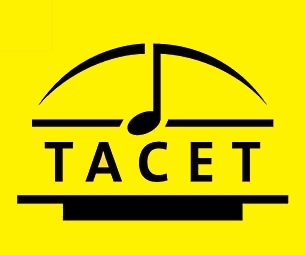"The number one reason to own this disc--and it′s a big number one--is for Rebecca Clarke′s surprising Viola Sonata. It′s not that the work hasn′t been recorded a few times, but this exciting performance brings much deserved attention to a composer whose chamber works have been all but ignored--and to a work that if given half a chance would be certain to find a wide and appreciative audience. Its style has been described as "English Impressionism" and indeed, when it was first presented in 1919--she entered it in a competition under a male pseudonym--the judges presumed it to be French, perhaps by Ravel. However, this is not in any way a knock-off of a better-known composer′s style but rather is a substantial, serious, original work that belongs to the viola, exploring numerous facets of the instrument′s voice and technical possibilities while regaling our ears with soaring melodies, a richly mixed harmonic palette, and an overall structure that places the soloist in an effective interactive role with the piano.
A second reason to own the disc is violist Hartmut Lindemann′s dramatic, confident, no-nonsense playing of this program, which is the fourth volume in a series that surveys both original works for the instrument and the inevitable transcriptions. As in the Clarke, his performance of the Hindemith sonata really shows off the work′s--and the viola′s--most powerfully assertive and romantically expressive sides. Then, after all the big stuff, we′re treated to a couple of delightful Kreisler pieces--his own Sicilienne et Rigaudon and his violin transcription of Dvorák′s Slavic Dance No. 2 (which in turn was re-transcribed by Lindemann for viola)--as well as Sarasate′s Zigeunerweisen and Lionel Tertis′ arrangement of Delius′ Serenade from "Hassan".
It′s difficult to tell the true breadth and depth of Lindemann′s viola because the recording confines its sound to a kind of wrong-end-of-the-megaphone focus that gives the tantalizing impression that there′s much more in there that we′re not hearing. Turning up the volume helps--but at times (especially in higher registers) it almost sounds as if the instrument is muted, an effect that certainly dulls the fireworks in a piece like the Sarasate, Lindemann′s dazzling technical show notwithstanding. No such restrictions on the piano, however, and Ben Martin plays with impressive authority and unflagging partnering skill. As a violist, I suppose my ears are particularly primed for what I know are the instrument′s strengths over the lowly violin(!)--among them its warm, full-bodied, reedy resonance--and while these qualities certainly are on display here, a little more room to bloom would have allowed Lindemann′s brilliant if slightly rough-edged virtuosity to shine even brighter. He deserves it."
David Vernier
<< back
A second reason to own the disc is violist Hartmut Lindemann′s dramatic, confident, no-nonsense playing of this program, which is the fourth volume in a series that surveys both original works for the instrument and the inevitable transcriptions. As in the Clarke, his performance of the Hindemith sonata really shows off the work′s--and the viola′s--most powerfully assertive and romantically expressive sides. Then, after all the big stuff, we′re treated to a couple of delightful Kreisler pieces--his own Sicilienne et Rigaudon and his violin transcription of Dvorák′s Slavic Dance No. 2 (which in turn was re-transcribed by Lindemann for viola)--as well as Sarasate′s Zigeunerweisen and Lionel Tertis′ arrangement of Delius′ Serenade from "Hassan".
It′s difficult to tell the true breadth and depth of Lindemann′s viola because the recording confines its sound to a kind of wrong-end-of-the-megaphone focus that gives the tantalizing impression that there′s much more in there that we′re not hearing. Turning up the volume helps--but at times (especially in higher registers) it almost sounds as if the instrument is muted, an effect that certainly dulls the fireworks in a piece like the Sarasate, Lindemann′s dazzling technical show notwithstanding. No such restrictions on the piano, however, and Ben Martin plays with impressive authority and unflagging partnering skill. As a violist, I suppose my ears are particularly primed for what I know are the instrument′s strengths over the lowly violin(!)--among them its warm, full-bodied, reedy resonance--and while these qualities certainly are on display here, a little more room to bloom would have allowed Lindemann′s brilliant if slightly rough-edged virtuosity to shine even brighter. He deserves it."
David Vernier
<< back
